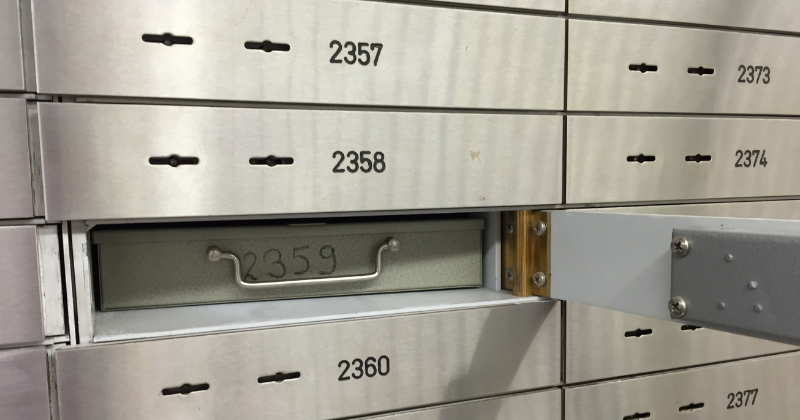
Nearly everyone knows NOT to store your will in a safety deposit box: your heirs probably won’t have access to your safety deposit box until after your burial. Today many records have gone digital and can be safely stored in the cloud. But what about valuable items that cannot be digitized, where should they be stored? An old-school safe deposit box is a good alternative to a home safe to safely store important, hard to replace documents, valuables and other assets that cannot be digitized.
1. Your Social Security Card
Social security cards can be difficult to replace. Kiplinger suggests storing your social security card in your safety deposit box to prevent identity theft.
2. Citizenship/Naturalization Papers
Becoming an American citizen is a proud moment after sometimes years of waiting, and losing your citizenship papers can be devastating. Immigration attorneys advise that new citizens keep their citizenship paperwork in a safe location, such as a safety deposit box.
3. Property Records
If you go to sell your home, don’t spend days – weeks! – searching for your deed, loan agreement and other property records.
4. Stocks and Bonds
Even if you track and manage your stocks online, you may have been issued or inherited hardcopy stocks and bonds.
5. Birth, Adoption, Marriage, Divorce and Death Certificates
When someone dies, is born, gets married or divorced or has other legal personal records, there is a lot of paperwork. You may never need it – but too often you’re required to show proof of… and knowing the record is securely stored in a safety deposit box can save you time and stress.
6. Family Photos
Genealogy is hot right now, and many people have family photos they’ve inherited – but don’t know what to do with. If you have original family photos or have had the photos transferred to a hard drive, a bank safety deposit box is a good place to store it until someone wants those irreplaceable photos.
7. Baseball Cards, Jewelry and Valuable Small Collectibles and Valuables
If you don’t need your small valuables on a frequent basis, a bank safety deposit box is a good location to store them – along with your supplemental insurance rider that protects their true value.
8. Household Inventory
Your written or digital inventory of all your personal possessions should be store away from your home. If your home burns down in a fire, for example, and your inventor was stored at home, it would be lost in the fire.
9. Access Information for Your Digital Assets
Digital assets are great – as long as your heirs know how to access them. Already there are too many stories of cryptocurrency passwords being forgotten or lost.
Banks and financial institutions charge from $20 to $200 per year for a safety deposit box, depending on its size and the bank’s location. So where should you store your will? Make sure your will is protected in a secured location such as a home safe, firebox, in the cloud or at your attorney’s office, and that key family members or trusted friends know that you have a will and a lawyer and who that lawyer is.
Learn More:
• How To Store and Protect Your Estate Planning Documents
• 7-Point Estate Planning Checklist
• Digital Asset Spring Cleaning Tips
Take charge of who will have access to your paperwork, digital assets and other valuables after you die or if you become incapacitated. Contact an experienced estate planning attorney at the Estate & Probate Legal Group in Oak Brook, Illinois at 630-864-5835.